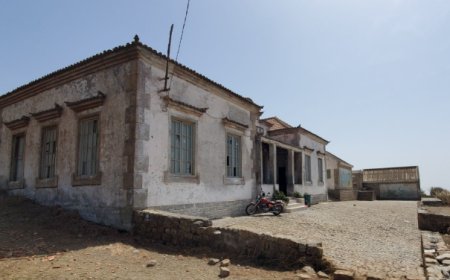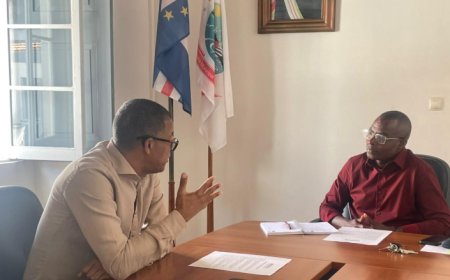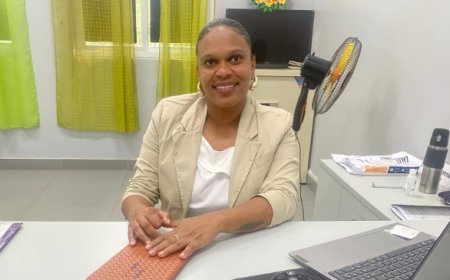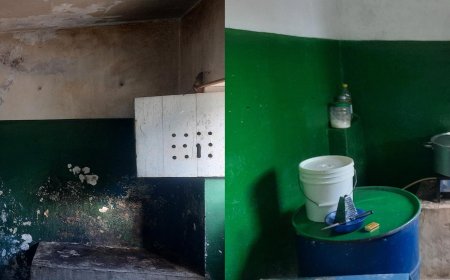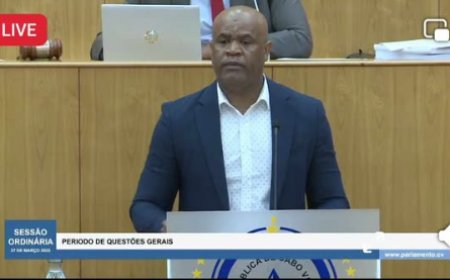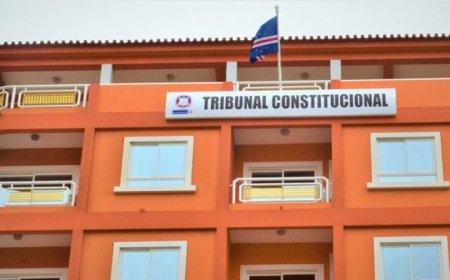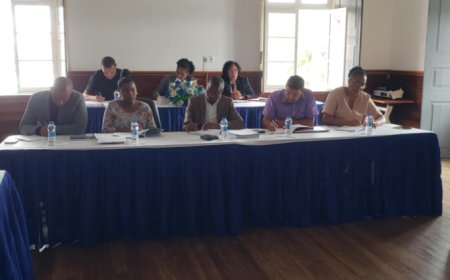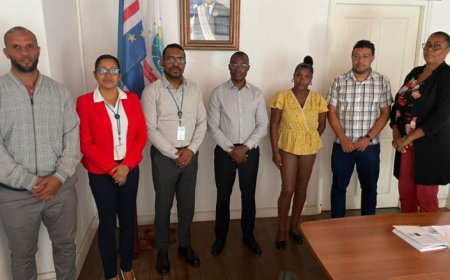1. Having read the aforementioned Report with all due attention, it is clear that it identifies a series of situations and makes recommendations on them. It in no way points to a scenario of widespread misrule or non-compliance, as is now being suggested, in a clear attempt to tarnish and tarnish the image of the President of the Republic and to weaken and condition his political intervention and his capacity to influence, in short, to exercise the powers conferred on him by the Constitution of the Republic. In view of this, it is imperative to recall and highlight aspects essential to a better understanding of what is at stake.
2. The principles of transparency and judicious use of resources have been the hallmarks of the management of the Presidency of the Republic, with undeniable gains not only in terms of Human Resources but also in equally important areas such as asset management. It is worth noting that it was from March 2022 that the Presidency of the Republic began to be aligned with SIGOF (Integrated Budget and Financial Management System). This was a considered and definitive decision, on the initiative of the President of the Republic, aimed precisely at making all acts of the management of the Presidency of the Republic directly and easily scrutinizable. In other words, the assumption of transparency across the board. Since that date, and for the first time, everything related to the administrative and financial management of the Presidency of the Republic has been fully exposed and transparent in the State's budget and financial management system, and is therefore subject to oversight, and therefore to concomitant oversight, by the bodies with oversight powers. And it must continue to be this way. It would be a step backwards to return to the previous situation. The point is that each agent or person responsible for this system fully fulfils their duties and the data entered into it is properly protected.
3. In fact, this possibility of direct and permanent scrutiny is a gain for the Presidency of the Republic and for the entire system. Even in a context of administrative and financial autonomy, there is still the intervention of other entities when it comes to paying expenses, particularly on the part of the Government, so that the existence, for example, of possible successive irregularities could never be the exclusive responsibility of the management of the Presidency of the Republic. Everyone must assume their responsibilities!
4. The First Lady's salary case was handled in good faith and with complete transparency, in a framework of explicit motivations and consultation and understanding with the Government at the highest level, and belief in the logic of institutional loyalty and transparency in the relationship that should exist between the Bodies of Sovereignty. All information was provided to the Prime Minister by the President of the Republic on this matter and, subsequently, budgetary issues were dealt with by the Ministry of Finance.
One fact that cannot be ignored is that citizen Débora Carvalho already had her job and professional life, and accepted having her income reduced in order to take on the role of First Lady full-time.
The Presidency of the Republic continues to understand that, although scattered and incomplete, there is a statute for the First Lady in Cape Verde, whether arising from rights that continued practice since 1975 has translated into State custom, or from the creation, with the organic law of the Presidency of the Republic in force since 2007, of the Office of Support for the Spouse of the President of the Republic, or from Decree-Law No. 14/2017, of March 30, which includes the First Lady in the list of Public Office Holders exempt from screening at the country's airports. In fact, two years later, through Decree-Law No. 12/2019, of March 22, the Government reiterates the inclusion of the First Lady in the 'list of holders of high public office exempt from screening'.
It was always clear to all interlocutors that there was a gap regarding the compensation to be awarded to the First Lady.
In this context, the Presidency of the Republic, which does not legislate, presented to the Government a preliminary draft of a new Organic Law of the Presidency of the Republic, which contains legal and administrative provisions aimed at regulating issues that have not yet been regulated or are poorly regulated regarding the First Lady. This was on May 5, 2022. First, and as good practice dictates, His Excellency the President of the Republic personally delivered the document to His Excellency the Prime Minister and, then, the Chief of the Civil House sent it, by official letter (Ref. 05/G-CCC-PR 2022, of May 5), to Her Excellency the Minister of the Presidency of the Council of Ministers. Therefore, it has always been the intention and desire of the Presidency of the Republic that the matter be resolved at the level of the Law. The measures adopted in the meantime were always announced as being provisional and all those involved in the different phases, whether in the processing of salaries, the payment of obligations to the Tax Authorities or the contributions to Social Security, were largely supported by Directive No. 1/2023 of the Chief of Staff. They never questioned it, never suggested a different path. They considered it sufficient! Furthermore, it is necessary to clarify why the Government did not give the necessary attention and priority to the proposed diploma of the Presidency of the Republic, thus breaking a long tradition, in this matter, of institutional loyalty and cooperation.
5. On the other hand, it is important to remember the following: at the same time as it presented the proposal for an organic law, the Presidency of the Republic included in the Budgets for 2023 and 2024 the necessary 'financial support' for the implementation of the new Organic Law, naturally including the provisions relating to the First Lady. This is clear in the Explanatory Notes sent to the Ministry of Finance in 2022 and 2023, respectively. Therefore, resources that are duly budgeted for are at stake, contained in State Budgets duly discussed and approved by the Government and the National Assembly. Furthermore, in the sessions of the so-called political arbitration, the reasons for each item were duly explained, particularly that relating to Human Resources, which includes the funds to support the First Lady's salaries. In other words, everything was conducted in broad daylight, in a framework of good faith, information to the Government, frank institutional dialogue, prior understandings and submission to the scrutiny of all the State's financial control mechanisms.
6. Still on the subject of the proposed new organic law, it is important to note that it is designed to bring about important institutional gains, 17 years after the current law came into force. The point relating to the First Lady is just one of a wide range of matters addressed in this proposed law. Today's reality is different and it is absolutely legitimate for the Presidency of the Republic to want to see conditions created, at the legal level, for progress in its organisation and in the management of its Human Resources. In light of the integrity of the institutional relationship, the Government's decision to block the Presidency of the Republic's intention to have a new organic law that, among other things, would eliminate the legal vacuum regarding certain aspects relating to the First Lady's Statute becomes inexplicable.
7. It should be noted that there are problems inherited from the past in terms of Human Resources management. For example, some situations of irregular employment contracts, as well as the payment of 1/3 as compensation for overtime, objectively as a way of compensating for salary discrepancies. These problems were identified early on and expectations grew for their resolution within the framework of the new organic law and, as a result, for a different treatment of Functions and Salaries. In line with the commitment to regularizing situations and improving management levels, the practice of buying vacations and paying salaries in advance has ceased. It is a pity that these matters are not mentioned in the Report of the General Inspectorate of Finance.
8. The situation inherited in relation to the so-called transport subsidy was one of clear imbalances and disregard for the limit established by law (ten thousand escudos per month), with some people receiving well above this limit. The first corrective measure was precisely to comply with this legal threshold. This historical record is not reflected in the Report, but it is worth mentioning that only with this first corrective measure were there direct gains for public resources. In the absence of regulation of the law that creates the right to transport, there was the problem, especially in the post-pandemic period, of ensuring transport conditions for employees, as practically all State services did. The alternative would be to accept the blocking of services due to a lack of employees... It seems unreasonable to us to simply say that the subsidy is not due to certain categories, ignoring the context of the specific services.
9. Likewise, an assessment of the management of the Presidency of the Republic going back further in time would show that the amount allocated to the Chief of Staff as house rent is the same amount allocated many years ago to previous holders of the position. If this amount had been questioned at some point, in some scrutiny, in some assessment of the management accounts, there would certainly not have been such inertia in the processing, from management to management. We cannot ignore the practice repeated over the years to consider the amount “inadequate and disproportionate” in relation to the current holder of the position...
10. Regarding the performance of her duties by the Legal Counsel from May 2022 to December 2023, the Board of Directors of the Presidency of the Republic maintains the arguments presented in the Counter-Reaction to the draft Report of the General Inspectorate of Finance, awaiting the Court of Auditors' ruling. In any case, it is worth reiterating here that, even though she was working remotely, the Counselor fully performed her duties. The General Inspectorate of Finance supports its recommendation to return the remuneration earned, in the event of her not taking up her position formally, regardless of the actual work materially performed and provided under a permanent availability regime.
In fact, in the aforementioned period of time, the work actually carried out included the assessment of more than a hundred diplomas submitted to the Presidency for promulgation, preparation of actions to monitor constitutionality, interventions and other documents requested by the President of the Republic, in addition to, of course, the legal advice itself to the President of the Republic.
Given that the legal employment relationship is established by appointment, a unilateral act of the Administration by which a position in the staff is filled, and that possession/acceptance is the act by which the appointee declares acceptance of the appointment, we consider, unless otherwise advised, that the case does not fall within the situations of mandatory possession, listed in Law No. 102/IV/93, of December 31, and it is appropriate to remember that the Advisors to the President of the Republic are integrated into a special career, whose equivalence to a manager is for the purposes of remuneration, rights and benefits and not for all purposes.
11. Regarding service provision contracts, the corrections suggested by the Inspection team were introduced during the Inspection, and we therefore believe that these contracts are now fully in line with their understanding. In any case, it is worth mentioning that the Presidency of the Republic has always had contracts of this nature, with individuals or offices, in the country and abroad, with the same remuneration amounts and following the same procedures. However, we understand the Inspection's objections as being in the interest of improvement, and so adjustments were made immediately. Had there been an Inspection in the past, the same objections would certainly have been made.
12. The Board of Directors of the Presidency of the Republic understands that, having seen the Report of the General Inspectorate of Finance and having sent it to the Court of Auditors, as was required, it is important to calmly await the statement of that body.















